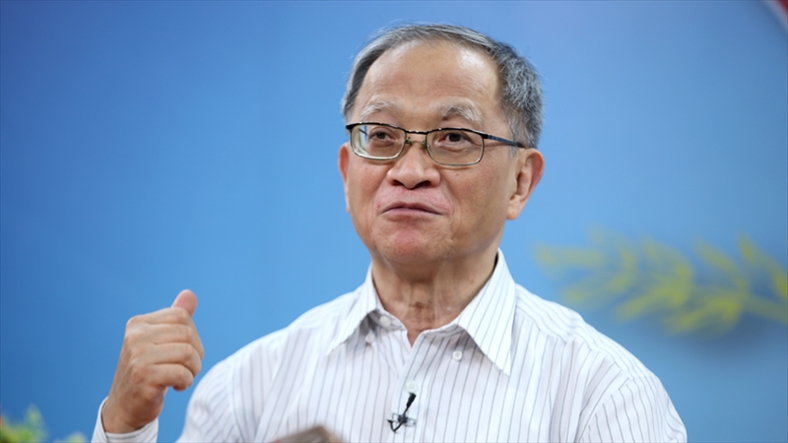Vietnam turns semiconductor vision into action
The global semiconductor industry is being reshaped by geopolitical tensions, shifting supply chains, and the surge of digital technologies.




In the coming time, if Vietnam does not have right management solutions, Vietnam will not be able to collect taxes of FDI (Foreign Direct Investment) enterprises because the transfer pricing will be much more serious, according to senior economist Le Dang Doanh.

At the National Assembly of Vietnam's session on October 31st, a delegate named Pham Trong Nhan said that up to 50 per cent of FDI enterprises in Vietnam reported loss. In despite of that loss, these companies still expanded their production.
In this issue, TheLEADER had a discussion with Le Dang Doanh, former director of the Central Institute for Economic Management (CIEM).
What do you think about the fact that up to 50 per cent of FDI enterprises in Vietnam reported loss?
Le Dang Doanh: Over the past years, about 50 per cent of FDI enterprises suffered loss and particularly, many businesses got into this situation for many consecutive years. It is worth mentioning that despite constant loss, these FDI enterprises continued to invest in expanding their production and business.
It is very clearly that FDI projects created positive impacts on Vietnam's economy. These projects not only contributed to raise budget revenues, improve technical and technological levels but also helped to develope the market economy in Vietnam, improve human resources as well as raised the standard of living for people.
However, the FDI sector also show some serious concerns such as transfer pricing, tax evasion and bad impacts on the investment environment in Vietnam.
In your opinion, how is this affecting the Vietnam's economy?
Le Dang Doanh: It can be said that almost FDI enterprises in Vietnam have transfer pricing. They brought their products from abroad into Vietnam at very high prices and then, when exporting products from Vietnam to their overseas branches, they counted at very low prices.
Becase of this reason, these companies always reported continuous loss and they were not required to pay corporate income tax.
This problem led to a loss of state budget, created unfair competition with domestic enterprises and had bad impact on the investment environment of Vietnam.
In order to deal with this problem, what solutions do you think Vietnam needs?
Le Dang Doanh: The transfer pricing and tax evasion of FDI enterprises occur not only in Vietnam but also in other countries around the world.
In my oppinion, Vietnam needs to coordinate with other countries and compare the price declared by FDI companies with the market price. This will clarify the transfer of their prices and have a basis to collect taxes.
In addition, state management agencies should establish a strict legal framework to control the transfer pricing behavior of FDI enterprises. At the same time, it is needed to limit ineffective investors and attract more reputable investors in order to build a positive investment environment in Vietnam.
Thank you very much.
The global semiconductor industry is being reshaped by geopolitical tensions, shifting supply chains, and the surge of digital technologies.
The change in APA approval authority is expected to shorten processing time and enhance business proactiveness in international tax negotiations.
As hybrid cloud systems grow more complex, Vietnamese enterprises are struggling to detect cybersecurity threats moving laterally within their own networks.
The submission of the draft resolution on Vietnam’s international financial center to the National Assembly heralds a new developmental era for the country.
More than just running a 5-star resort, Kristian Petersen is redefining the art of hospitality with a humane and sustainable leadership philosophy.
For Tyna Huynh, co-founder of Drinkizz, organic is not just a food choice but a way of life that fosters a deep connection between people, nature and community.